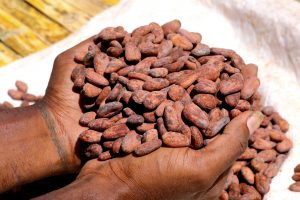Blog: On International Women’s Day we celebrate our partners pushing for equality
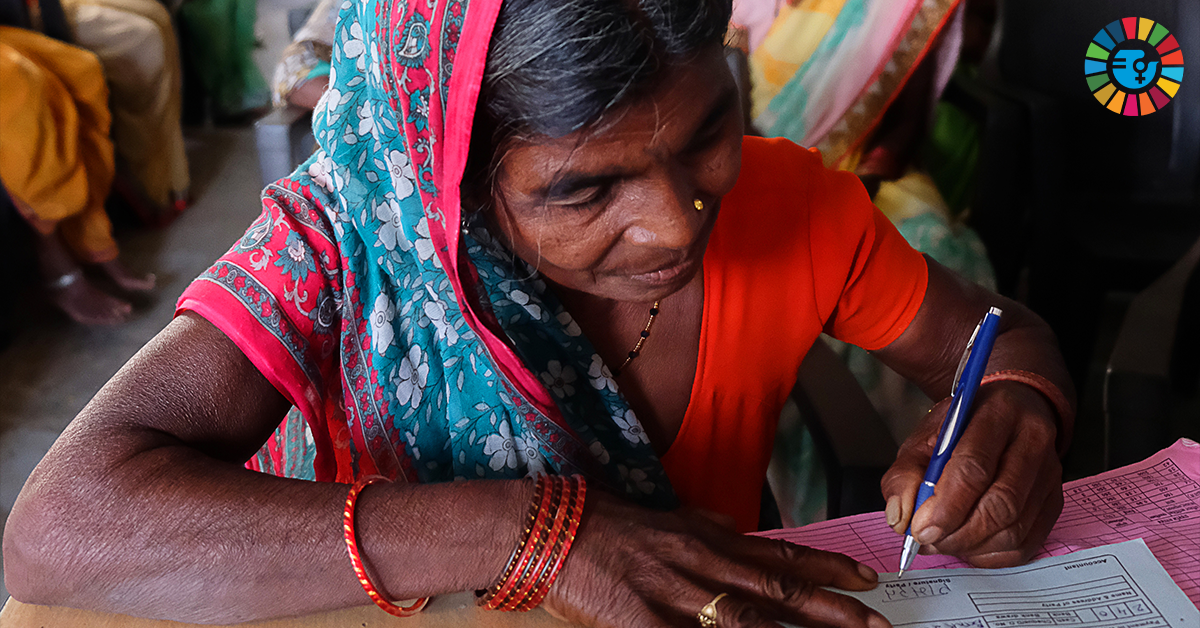
In our work with BPP partners we’ve found a strong willingness from businesses to know more and do more to push for equality. We have also seen the results of a business owning the conversation. Here we share some examples of businesses, and the NGO partners that support them, taking ownership of the process and nudging the conversation on gender equality.
One of the expected social impact outcomes of all BPP partnerships is for partners to incorporate strategies to promote gender equality and support women’s empowerment.
The BPP works in a supporting capacity, providing guidance and tools to help businesses to understand their impact on women, the barriers women may face in their supply chains, and to identify and manage potential risks to women and girls. With this information, businesses and their partners are developing strategies to empower women.
The BPP has learned that businesses that initiate their own gender analysis are more likely to take ownership of not only the process, but also the results. A gender analysis can raise issues within the business that require action, and provide a crucial evidence base for that conversation. Taking ownership of the outcomes of the analysis helps set a business up for long-term change.
Here we look at business and NGO partners that are leading the conversation and taking action, and the strategies business and NGO partners are using to promote gender equality and empower women
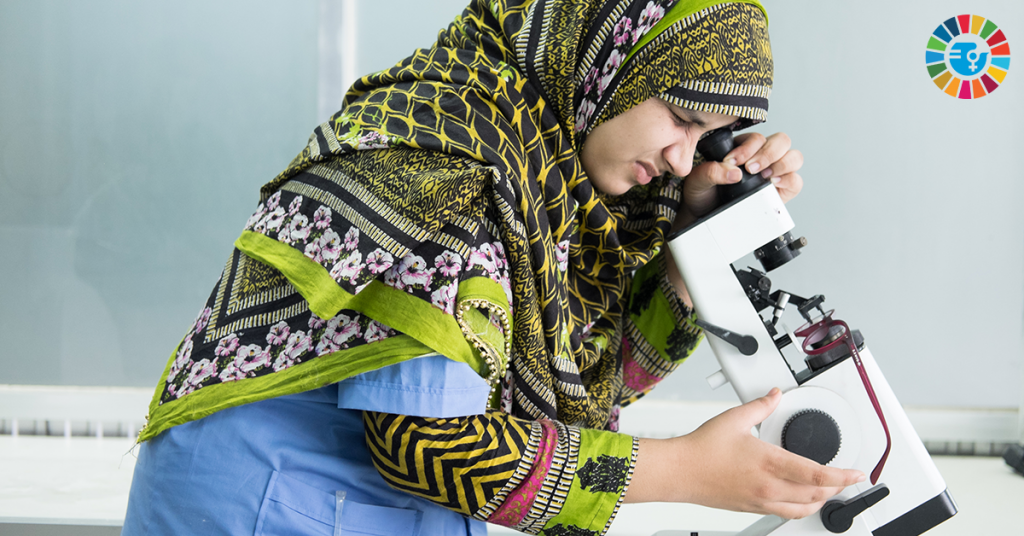
“Eye Mitra” optician training, Bangladesh © Essilor
A business dedicated to empowering women in Bangladesh
A BPP partnership with DFAT, eye glasses manufacturer Essilor, health-promotion organization Grameen Kalyan and training consultancy MART is expanding Essilor’s “Eye Mitra” (“friend of the eye” in Hindi) optician training program for rural youth in Bangladesh.
When the training program first opened in Bangladesh, few women enrolled in the program and those that did often dropped out before completing their training. The BPP encouraged the partners to undertake a gender study to identify the barriers women face in the training program, and as practicing Eye Mitra.
The study found that one of the most significant barriers was a lack of family support, with families and community influencers expressing concerns about women working outside of the home and starting a business. This is now influencing the partnership’s approach to the successful recruitment and retention of female Eye Mitras, by involving families and communities directly in the recruitment process and by encouraging prospective students to meet successful female Eye Mitra, giving families and students positive examples of change.
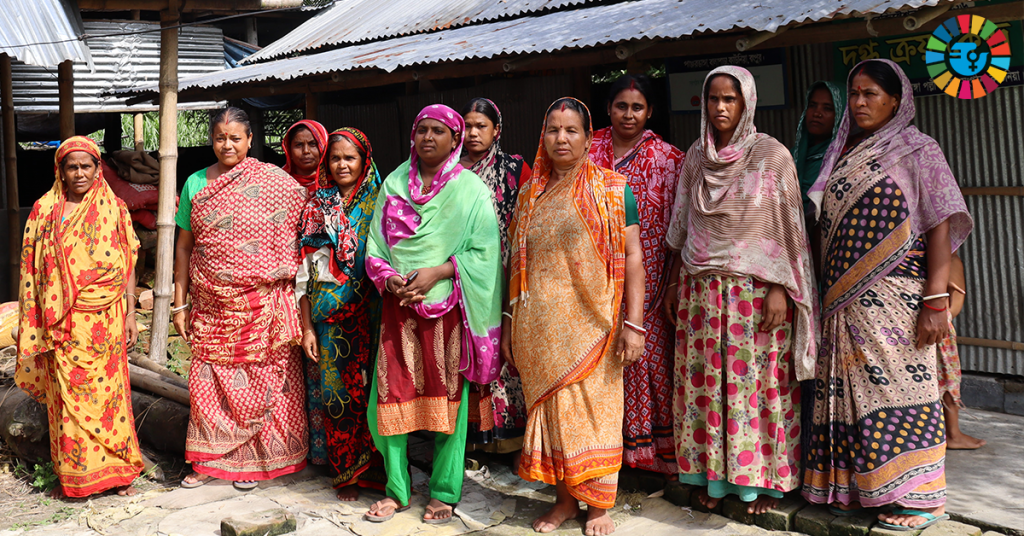
Female dairy producer group © BPP
An NGO supporting a business to deliver its gender strategy in Bangladesh
A BPP partnership with DFAT, Bangladesh SME Corporation Limited (BSCL) and Oxfam is graduating women-led dairy farmers into sustainable dairy enterprises through access to finance, training, and market linkages.
Oxfam brought to the partnership its gender and capacity building expertise and a 4,000 strong women farmer network, complementing BSCL’s ability to provide critical access to finance for the dairy farmers. Using its innovative fintech platform, BSCL digitises the farmer’s financial data, provides a credit score and arranges funding from its financial network. Training and support from Oxfam is essential to ensure the farmers are able to successful leverage the funding to grow their businesses. This is a great example of how the BPP can leverage the experience of different partners to bring value to the private sector and to communities.
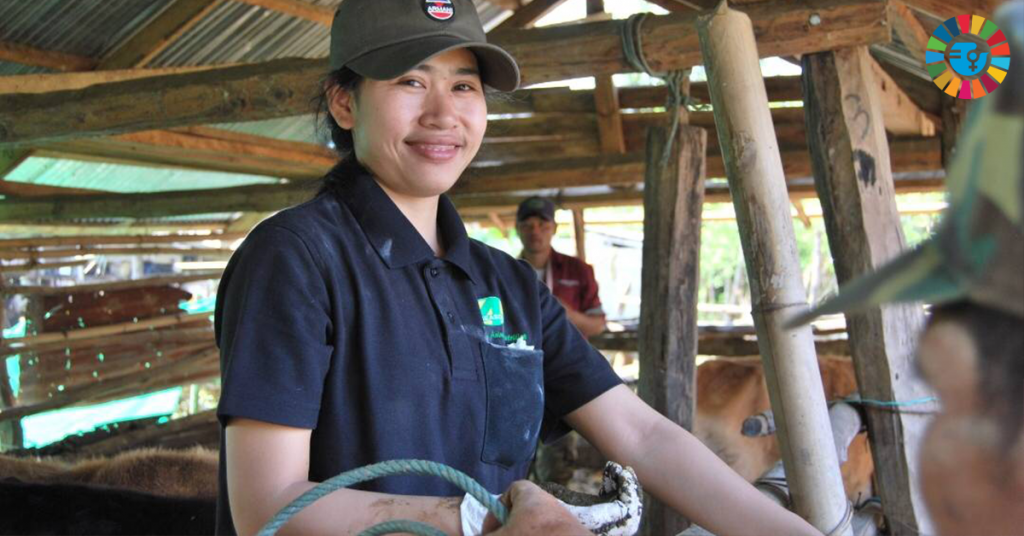
Student, Ludsamee, training in livestock management, Laos © 4S/USYD
A business that has undertaken a study of gender dynamics on farms in Laos
A BPP partnership with DFAT, Australian agribusiness 4 Season Co., The University of Sydney (USYD) and the Laos Department of Livestock and Fisheries (DLF) aims to improve farmer livelihoods through improved livestock disease control. When distributing their disease control product to farmers, often only men were present at the training sessions. The partners conducted a study of gender dynamics and learned that women in smallholder farms spend the majority of their time on the farm, while men often work a secondary job to earn income. This has highlighted the necessity to engage women in training and extension activities in order to successfully improve the farm’s productivity and disease control. In response, the partners have planned female-only training sessions, at times which fit around women’s schedules.
The study also found that women were often the financial decision makers in the household, providing the business with critical insights to ensure their marketing is targeted effectively, and as many communities as possible are able to benefit from their products.
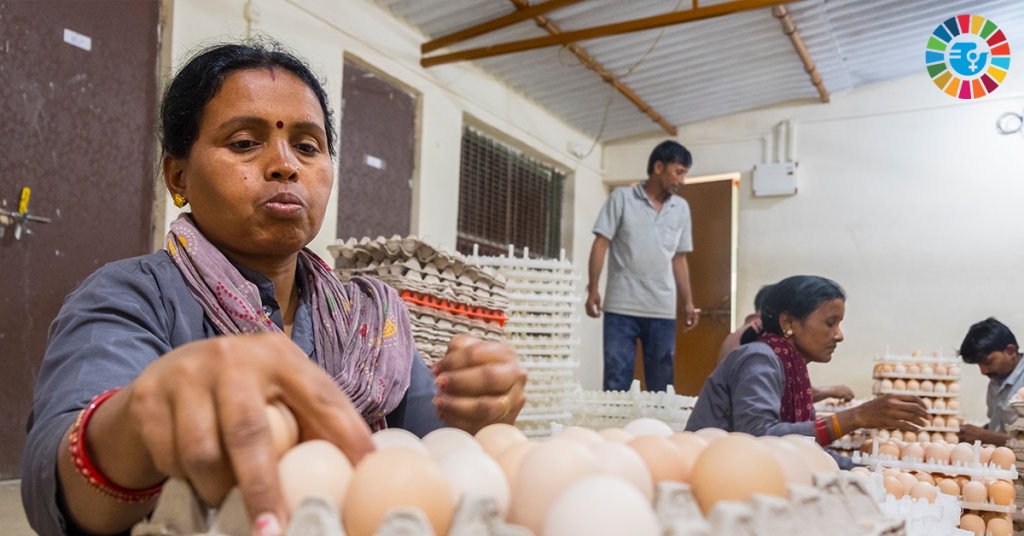
Workers in the new hatchery facility for women poultry producers, India © BPP/iMentor
A business that has initiated and undertaken its own gender analysis in India
A BPP partnership with DFAT, Madhya Pradesh Women Poultry Producer Company (MPWPCL) and social sector advisory firm Intellecap is catalysing growth in the poultry sector.
The partnership is supporting the construction of a new processing facility, increasing incomes for 7000 women producers from marginalised communities in the process. MPWPCL undertook a gender study with new producers. MPWPCL was surprised to learn of the high levels of domestic violence experienced by women in its supply chain. The BPP is now working with MPWPCL to identify ways that it can respond.

